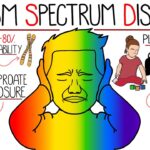In the ongoing quest for optimal health and disease prevention, particularly concerning serious conditions like cancer, dietary advice abounds.
Many individuals seek simple, definitive answers, often leading to drastic measures. One common question that arises is whether completely eliminating staple food groups, such as rice or meat, can effectively prevent cancer. However, health experts caution against such extreme approaches. As explained by Dr. Dinh Tran Ngoc Mai from the University of Medicine and Pharmacy in Ho Chi Minh City, completely cutting out essential food groups like rice or meat from your daily intake can have significant negative consequences. Such restrictive diets can lead to “energy deficiencies,” “weakened immunity,” and “muscle loss.”
These nutritional imbalances are not only detrimental to overall well-being but can be “particularly harmful to cancer patients,” who require robust nutritional support to withstand treatments and recovery.
The human body is an intricate system, and its optimal functioning relies on a consistent and balanced intake of all essential nutrients. Dr. Mai emphasizes a fundamental principle of nutrition: the body “requires all five nutrient groups to maintain health.” These groups work synergistically, each playing a crucial role in supporting various bodily functions, from energy production to cellular repair and immune defense.
Understanding the importance of each nutrient category is key to grasping why blanket exclusions of entire food groups are counterproductive, especially when the goal is to build a resilient body capable of defending against diseases like cancer. This article will delve into the critical roles of these nutrient groups and provide a nuanced understanding of dietary strategies for cancer prevention, moving beyond simplistic elimination to embrace a more holistic and evidence-based approach.
The Five Essential Nutrient Groups and Their Vital Roles
To truly appreciate the importance of a balanced diet, it’s crucial to understand the fundamental roles played by each of the five essential nutrient groups. Dr. Mai meticulously outlines these, highlighting why none should be entirely excluded without careful consideration and professional guidance.
1. Carbohydrates: The Body’s Primary Fuel
Often misunderstood or unfairly demonized in some diet trends, Carbohydrates are undeniably “the primary source of energy for daily activities.” They are the body’s preferred and most efficient fuel. Both the “brain and muscles rely on glucose from carbohydrates to function.” Glucose is the critical energy molecule that powers cognitive processes, allows for physical movement, and fuels all cellular activities. Without adequate carbohydrate intake, the body is forced to break down proteins (muscle) for energy, leading to muscle loss, and can also experience fatigue and impaired cognitive function. For cancer patients, who often face energy-depleting treatments, a consistent and reliable source of energy from carbohydrates is absolutely vital.
2. Proteins: Building Blocks and Immune Defenders
Proteins are multifaceted macromolecules essential for life. They are crucial “for regenerating and repairing tissues,” from skin and organs to blood cells. This repair function is particularly critical during periods of stress or recovery. Beyond structural roles, proteins are fundamental in “supporting immunity.” Antibodies, which are vital components of the immune system, are made of protein, as are many enzymes and hormones that regulate bodily functions. This immune support is “especially important for cancer patients who require enhanced resistance” against infections and to aid in recovery from treatments that can compromise the immune system.
3. Fats: Stored Energy and Vitamin Absorption
Another often-maligned nutrient group, Fats, are indispensable for human health. They “provide stored energy,” serving as a concentrated fuel reserve for the body, particularly during periods of fasting or prolonged physical activity. More importantly, certain fats are essential for the absorption of vital micronutrients. They “help absorb fat-soluble vitamins like A, D, E, and K.” These vitamins play critical roles in vision, bone health, antioxidant defense, and blood clotting, respectively. Without sufficient healthy fats in the diet, the body cannot effectively utilize these fat-soluble vitamins, leading to deficiencies.
4. Vitamins and Minerals: Metabolic Regulators and Immune Boosters
Though required in smaller quantities, Vitamins and minerals are potent micronutrients with colossal impact. They “strengthen immunity,” acting as cofactors for numerous immune responses. They also “support metabolism,” participating in countless enzymatic reactions that convert food into energy and synthesize new compounds. Furthermore, many vitamins and minerals directly “combat harmful pathogens” and protect cells from damage. Their roles are diverse and critical for maintaining overall physiological balance and resilience.
5. Fiber: Digestive Health and Disease Prevention
Finally, Fiber, primarily found in plant-based foods, is crucial for digestive health and beyond. It “improves digestion” by adding bulk to stool and facilitating regular bowel movements, preventing constipation. Crucially, adequate fiber intake “reduces the risk of chronic diseases, including colon cancer.” Fiber aids in the rapid transit of waste products through the gut, reducing exposure to potential carcinogens, and also supports a healthy gut microbiome, which is increasingly linked to overall health and cancer prevention.
In summary, the intricate interplay of these five nutrient groups underscores why a holistic approach to diet is superior to restrictive eliminations. Each component serves a unique and vital function in maintaining health and building the body’s natural defenses, making comprehensive nutrition a cornerstone of disease prevention, including cancer.
The Nuance of Meat Consumption: Red Meat and Processed Meat Risks
While the complete elimination of meat is not advisable due to its essential protein content, Dr. Mai clarifies that not all meats are created equal when it comes to cancer risk. Her emphasis shifts from blanket avoidance to discerning consumption, highlighting the dangers associated with particular types of meat. Dr. Mai explains that “excessive and improper consumption of red meat and processed meats can increase the risk of cancer.” This distinction is critical; it’s not simply “meat” that poses a risk, but specific categories and methods of preparation.
Red meat, typically defined as meat from mammals, including “beef, pork, and lamb,” has been a subject of extensive research regarding its link to certain cancers. The concern intensifies when red meat is consumed in large quantities. “Overconsumption of red meat… may elevate the risk of colorectal cancer.” This association is partly attributed to “harmful compounds produced during digestion.”
For instance, heme iron, naturally abundant in red meat, can catalyze the formation of N-nitroso compounds (NOCs) in the gut, which are known carcinogens. Additionally, high-temperature cooking methods for red meat, such as grilling or charring, can produce heterocyclic amines (HCAs) and polycyclic aromatic hydrocarbons (PAHs), further contributing to carcinogenic risk.
Even more significant is the risk associated with processed meats. These include common items like “sausages, ham, bacon, hot dogs, and cured deli meats.” The World Health Organization (WHO) has classified processed meat as a Group 1 carcinogen, meaning there is sufficient evidence that it causes cancer, specifically colorectal cancer. This elevated risk is due to several factors intrinsic to how these products are made. “Many processed foods—including meats—contain preservatives, additives, or high levels of salt.”
Nitrates and nitrites, commonly used as preservatives in processed meats, can form carcinogenic N-nitroso compounds in the digestive tract. High levels of salt contribute to inflammation and can directly damage the stomach lining, while other additives may also play a role in increasing cancer risk. Collectively, these components “can contribute to an increased risk of gastrointestinal cancers,” extending beyond just colorectal cancer.
Therefore, the message is not to avoid all meat, but to exercise prudence. Limiting the intake of red meat, especially processed varieties, and focusing on healthier cooking methods are key strategies for mitigating potential cancer risks associated with meat consumption. This nuanced understanding allows individuals to make informed dietary choices without resorting to extreme and potentially harmful eliminations.
The Dangers of Unbalanced Elimination: Why Not Cutting Out Food Groups
Given the critical roles of each nutrient group and the nuanced risks associated with specific food types, Dr. Mai strongly cautions against radical dietary exclusions. Her message is clear: “improperly eliminating entire food groups like rice (carbohydrates) or meat (proteins) does not contribute to cancer prevention.” In fact, such drastic measures are not only ineffective for cancer prevention but can actively undermine overall health, potentially creating new vulnerabilities.
The consequences of arbitrarily cutting out major food categories are far-reaching and detrimental. Such dietary imbalances “may cause several negative health effects.” These include:
- Nutritional Imbalance: When entire food groups are removed, it becomes incredibly challenging to obtain a complete spectrum of essential vitamins, minerals, and macronutrients. This creates deficiencies that weaken the body’s overall functioning.
- Energy Deficiency: Without adequate carbohydrates, the body’s primary fuel source, individuals will experience a chronic lack of energy, leading to fatigue and reduced physical and mental performance.
- Weakened Immunity: Both carbohydrate and protein deficiencies can severely compromise the immune system, leaving the body less equipped to fight off infections and potentially less capable of managing cellular abnormalities, which is particularly concerning for cancer risk.
- Decreased Cell Regeneration: Proteins are vital for cell repair and regeneration. A lack of sufficient protein impairs the body’s ability to maintain and repair its tissues, which can be detrimental for cellular health.
- Muscle Loss: When the body doesn’t get enough carbohydrates or fat for energy, it begins to break down muscle protein to meet its energy demands, leading to sarcopenia (muscle loss) and overall physical weakness.
- Physical Weakness: The combination of energy deficiency and muscle loss results in general physical weakness, impacting daily activities and quality of life.
- Increased Risk of Metabolic Disorders: Unbalanced diets can disrupt metabolic processes, potentially leading to or exacerbating conditions like insulin resistance or other metabolic dysfunctions, which can indirectly influence cancer risk.
Furthermore, Dr. Mai highlights a related but distinct nutritional pitfall: “a low intake of fruits and vegetables.” These plant-based foods are powerhouses of protective compounds. A deficiency in these can lead to a “deficiency in antioxidants (vitamins C, E, carotenoids).” Antioxidants are crucial for combating “free radicals,” unstable molecules that cause cellular damage (oxidative stress), which is a known contributor to cancer development. Without sufficient antioxidants, the body’s “ability to combat free radicals” is significantly reduced, leaving cells vulnerable to damage that can initiate or promote cancer.
Therefore, the message is clear: true cancer prevention through diet is about strategic inclusion and moderation, not wholesale elimination. A well-nourished body with a robust immune system is the best defense.
Building a Cancer-Protective Diet: Balanced Choices and Healthy Habits
Instead of resorting to extreme and potentially harmful dietary eliminations, Dr. Mai advocates for a more sustainable and evidence-based approach: “a balanced and healthy diet.” This philosophy centers on making conscious, informed food choices that support overall health and enhance the body’s natural defenses against disease, including cancer.
A cornerstone of this balanced diet is the increased consumption of plant-based foods. Dr. Mai specifically suggests “increasing the intake of vegetables and fresh fruits.” These are nutritional powerhouses, incredibly rich in “antioxidants and fiber.” Antioxidants protect cells from damage caused by free radicals, which are implicated in cancer development. Fiber, as previously discussed, is crucial for digestive health and helps reduce the risk of colorectal cancer by facilitating waste removal and promoting a healthy gut microbiome. Including a wide variety of colorful fruits and vegetables ensures a diverse intake of these protective compounds.
Alongside boosting plant-based foods, the strategy involves a critical re-evaluation of meat consumption. Dr. Mai advises “limiting red meat and processed foods.” This aligns with the understanding that while meat provides essential nutrients, excessive consumption of certain types carries increased cancer risks. Instead of these, she recommends prioritizing “Healthy protein sources like fish, beans, nuts and seeds” as “good substitutes for red and processed meats.” Fish, particularly fatty fish, provides omega-3 fatty acids, which have anti-inflammatory properties. Beans, lentils, nuts, and seeds offer excellent plant-based protein, fiber, and a host of beneficial micronutrients, supporting both satiety and cellular health.
Beyond food choices, cooking methods also play a vital role in cancer prevention. Dr. Mai emphasizes that “Healthier cooking methods, such as steaming, boiling, or quick stir-frying, should be prioritized over grilling or deep-frying.” High-temperature cooking methods like grilling, pan-frying, and deep-frying can produce harmful compounds like heterocyclic amines (HCAs) and polycyclic aromatic hydrocarbons (PAHs) in meats, which are known carcinogens. Steaming, boiling, and quick stir-frying, on the other hand, cook food gently, preserving nutrients and minimizing the formation of these undesirable compounds.
Furthermore, the type of carbohydrates consumed matters significantly. It’s also important to “use whole grains like brown rice, oats, and whole wheat bread instead of refined grains.” Whole grains retain their bran, germ, and endosperm, providing substantially more “fiber and sustainable energy” compared to refined grains, which have had these beneficial components removed. The fiber in whole grains aids digestion and satiety, while their slower release of glucose helps maintain stable blood sugar levels.
Finally, Dr. Mai offers broader lifestyle advice beyond specific food groups, urging control over the intake of “sugar and salt to reduce the risk of inflammation and chronic diseases.” Excessive sugar consumption can promote inflammation and contribute to obesity, both risk factors for various cancers. High salt intake is linked to an increased risk of stomach cancer and high blood pressure.
By adopting these comprehensive dietary and lifestyle modifications—focusing on balance, variety, and mindful preparation—individuals can significantly “support their overall health and reduce the risk of cancer,” fostering a resilient body ready to face health challenges.








